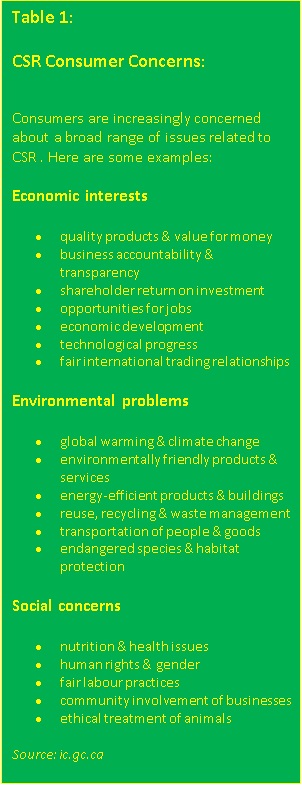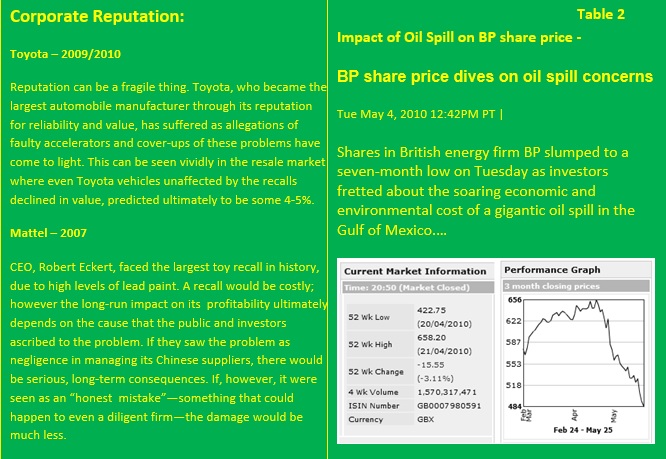Procurement: Greening the Machine
Procurement: Greening the Machine – A guide for CEO’s, CFO’s and CPO’s on why procurement is a key capability in developing advantage via corporate social responsibility
What’s in it for you?
Improved risk and reputation management in your supply chain
Reading time:
15 minutes
 Peer pressure, tougher legislation, a rise in global sourcing combined with increased consumer and stakeholder awareness and concern, has served to drive CSR increasingly centre stage on the corporate agenda.
Peer pressure, tougher legislation, a rise in global sourcing combined with increased consumer and stakeholder awareness and concern, has served to drive CSR increasingly centre stage on the corporate agenda.
CSR is now both a top and bottom line issue, and sustainable procurement practices can serve as a critical weapon to help CEO’s reduce cost, grow the business and protect the organisation from reputational risk.
Under intense media scrutiny, corporate behaviour drives reputation, so given the large portion of corporate value that is “intangible” in nature, reputation is extremely important to shareholders. The business case for CSR practices cannot therefore be separated from the environment in which a company operates, – in short ‘using green to stay in the black’.
The challenge as always is to manage CSR threats and opportunities better than your competitors. Increasingly it is not a question of whether a business should have a CSR strategy, but ‘how’ to operationalise it and embed sustainable principals throughout the entire value chain.
Using Green to Stay in the Black:
Reputation management is at the core of CSR and those companies that have built a robust supply chain, with a focus on CSR enjoy a considerably higher rate of return than their competitors.
The economics of CSR is similar to that of ‘perceived quality’ – it’s ability to command a higher margin. Therefore, any additional CSR costs may be cancelled out by consumers accepting to pay an additional premium or through prices being positively affected by the additional efficiency that CSR can bring about.
For example ‘Body Shop’ has expressly sought to address consumer concerns, (see Table 1). Demonstrating to consumers, their products:
- were not produced using slave labour,
- had respected the environment,
- that the technology to produce them was acquired without corruption payments, and
- that the human rights of its employees and the local community had been protected, etc.
Linking CSR to Business Strategy – Leading via Reputation
Stakeholder trust and relationships are the foundations of any enterprise. Leading companies such as Starbucks are demonstrating that value is created through strong relationships with key stakeholder groups most relevant to their business.
When organizations are not in sync with their stakeholders, the result is always long-term loss of value due to reputation loss. This is particularly critical for organisations with a strong brand equity. For example, Arthur Andersen collapsed almost entirely due to reputational damage after the 2002 Enron scandal.
While procurement leaders routinely assess insource-outsource strategies, hedge against currencies, use futures markets to hedge against price fluctuations, and locate critical infrastructure off-site, the means to manage reputation risk is rather less developed. CSR is one such strategy.
The Responsible Procurement Dilemma game can be a great way to engage your team on the impact of their decisions upon key stakeholder groups. See bottom of page.
CSR supports alignment of business strategy with key stakeholders, which can serve to accelerate growth and reduce business uncertainty. It also provides a unifying framework to weigh the ethical impact of business decisions on stakeholders against the business value in each stakeholder group.
A robust CSR strategy, therefore, makes good business sense, and the increased reputation it drives, can in some cases make the difference between corporate survival or collapse should the worse happen. Procurement and the supply chain are a critical component. The concept of ‘doing good and preventing harm’ makes business sense when viewed in the context of recent CSR failures. See Table 2:
Procurements Role in CSR
 The overarching goal of sustainable procurement is to manage the competing stakeholder demands when making purchasing decisions. This stakeholder based approach provides a strong framework for CPO’s to align the supply chain to key stakeholder groups by implementing a strong CSR strategy. In doing so, procurement can make a major contribution to protecting and enhancing the organisations brand reputation, by developing linkages with sustainable suppliers to make the supply chain a source of ‘reputational advantage’ over the competition.
The overarching goal of sustainable procurement is to manage the competing stakeholder demands when making purchasing decisions. This stakeholder based approach provides a strong framework for CPO’s to align the supply chain to key stakeholder groups by implementing a strong CSR strategy. In doing so, procurement can make a major contribution to protecting and enhancing the organisations brand reputation, by developing linkages with sustainable suppliers to make the supply chain a source of ‘reputational advantage’ over the competition.
Given that most of the drivers for CSR impact upon procurement strategies, the CPO should rightly be at the centre of any CSR strategy. So how do supply management leaders drive change on this issue? A few tasks to consider, based on the actions of the pioneers are:
- Understand your organisations exposure to CSR risk and the drivers for CSR
- Establish governance around CSR via an executive steering committee
- Develop category & supplier strategies around CSR
- Develop monitoring and reporting capabilities around CSR issues
Opportunities exist at each step of the procurement process. Knowing what is important to the organisations business strategy goes a long way in helping to identify necessary tradeoffs.
Drivers
Globalisation, regulation, increasing concern on human rights and the environment are all driving the CSR procurement agenda. For procurement, these drivers impact four main capabilities:
- risk management
- life cycle cost optimisation
- performance improvement and
- innovation and new product development
Each capability in turn impacts purchasing decisions across products, services, and processes. Leadership must then consolidate them to form a sustainable procurement strategy across all CSR dimensions.
An organisations CSR performance can be determined largely by its suppliers’ performance. Working with suppliers in all procurement stages is, therefore, a key factor in the success of sustainable procurement. Only by thinking beyond the limits of your company and optimizing the entire supply chain can organisations satisfy the most stringent customer sustainability standards:
Sourcing Process
From spend analysis, reviewing the specification, ensuring RFP’s contain CSR requirements, through to evaluating and negotiating bids based on CSR cost/benefit criteria. The strategic sourcing process is a key tool in driving sustainability throughout the supply chain. These criteria need to be tracked both internally and externally to ensure the targeted benefits and risk mitigation are achieved.
Relationship Management
Managing a wide network of suppliers is a key element of maintaining sustainable procurement. Standards, goals and expectations should be communicated, and objectives aligned:
Codes of Conduct
Increasingly, leading organisations are issuing codes of conduct to their suppliers in order to spread their values to the supply base. CPO’s must ensure that a code of conduct reflects the issues that are of importance to the organisation. For example, social inclusion, human rights, the environment, or corruption. So first it needs to be relevant to your business and consistent with its values.
Education
- Proactive outreach – Co-operation, co-ordination, and collaboration.
- Developing environmental procurement policies and specifications
- Awareness campaigns of buyer requirements
- Helping suppliers with audits and assessments
- Helping with access to tools and information
- Mentoring and training suppliers
Audits
Supplier audits are vital to ensure the supply base is compliant with CSR values. Audits should take place on each of the CSR dimensions to cover social accountability, environmental sustainability and the economic impact of supplier capabilities.
Exit Strategies
Businesses typically spend far more time getting into contracts than on planning how to get out when things go wrong. That can leave buyers trapped when a supplier disappears, or a series of ‘code of conduct’ breeches forces you to terminate the contract.
In crafting an exit strategy think about:
- Where would you go?
- Who owns what?
- What would you need that only your current provider has?
- Is it documented?
- How to keep the relationship on good terms?
In the event, you need to cancel the contract you want the supplier to be motivated to treat you professionally, and terms that specifically help you negotiate a smooth transition. If you don’t do that, you risk making an incompatible supplier choice, a long term partner.
Conclusion
CSR is applicable to all companies. For those that implement sustainable procurement strategies, tangible value can be created through increased overall cost efficiency, enhanced reputation and market share, and reduced environmental risks and liabilities. A sustainable supply chain, therefore, contributes to a company’s overall reputation among customers, investors, employees, and other stakeholders. Especially when procurement cooperates with suppliers and customers to generate new ideas. In short, those that do not have CSR on their agenda today are likely to face important problems tomorrow.
Nuff said …
The responsible procurement dilemma challenge game will change the way you promote you’re corporate social responsibility agenda.
THIS UNIQUE GAME WILL HELP YOU:
1. CREDO: Reinforce your organizations CREDO
2. Build Awareness: Create awareness about your agenda in an active way
3. Engage Stakeholders: Engaging stakeholders at all levels of the company in a fun, informal and inspiring way, be it senior management, new employees, procurement professionals, suppliers, or new talent etc.
During the game players are presented with a series of dilemmas based on social, economic and environmental aspects which they have to address by making decisions. Players encounter how these decisions can affect the company’s relationship with its stakeholders. They will also be put in situations where economic interest and responsible behavior are at odds with each other and therefore a dilemma is created.
It provides an excellent and unique way to engage your employees on corporate social responsibility issues.
If you would like to know more email us at:
CSRdilemma@purchasingpractice.com



